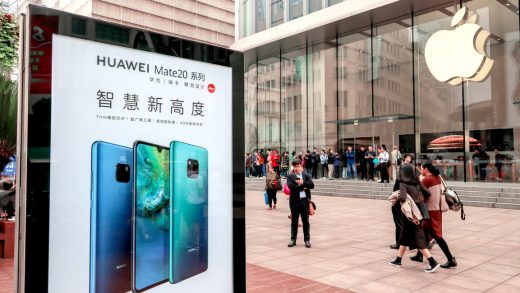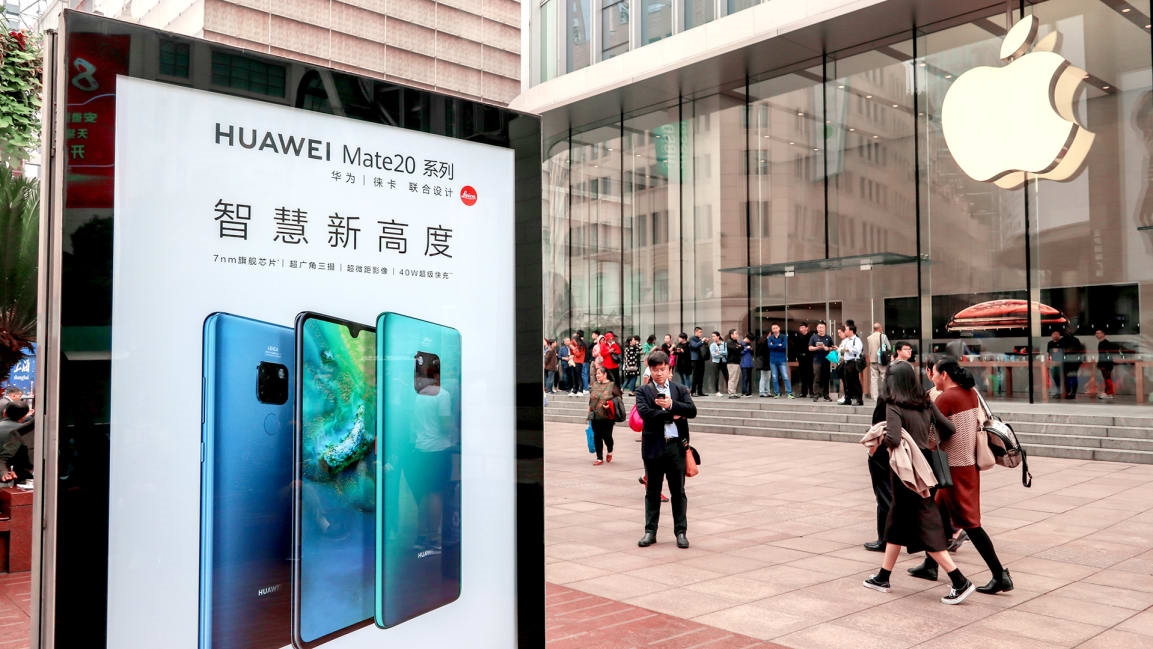UBS: Huawei VP arrest, trade war, tanked iPhone sales in China
Analysts are still working through the possible causes of Apple’s stunning $5 billion guide-down of its holiday quarter revenues. Apple laid the blame on weak iPhone sales in the Chinese market during the quarter, but did not pinpoint a single cause of that shortfall.
A widely shared Wall Street Journal report from Sunday focuses blame for the shortfall on poor sales of Apple’s new “low-cost” phone, the iPhone XR, in the Chinese market. The piece argues that because the XR sells for the equivalent of $945 U.S. dollars in China, price-conscious buyers see options in Chinese phones from the likes of Huawei and Oppo as better deals, while Chinese “status” buyers are more likely to opt for the top-of-the-line iPhone Xs and Xs Plus.
Sounds reasonable, but a new UBS analysis tells a different story, suggesting that geopolitics may have played a much larger role than originally understood. UBS’s Tim Arcuri says iPhone shipments to China fell off sharply in December after the arrest of Huawei CFO Meng Wanzhou in Canada December 1, and as anxieties over a U.S.-Chinese trade war lingered.
Here’s Arcuri in a research note released Monday:
“According to China MIIT data, we calculate Apple shipments in China were ~9-10 million through the first two months of the [holiday 2018] quarter, thus implying that shipments in December month may have only been a couple of million units. iPhone XR was weak since launch, but this much of decline could imply some potential backlash to the Huawei event and trade issues.”
Meng is the daughter of Huawei’s founder, Ren Zhengfei. She was arrested at the request of the U.S., which also requested her extradition. The U.S. government suspects Meng of violating rules that prohibit trade with hostile countries including Cuba, Iran, Sudan, and Syria. The arrest came on the same night that President Trump was meeting with Chinese president Xi Jinping in Buenos Aires to discuss trade. In the meeting, Trump and Xi agreed to a 90-day trade truce, but the Meng’s arrest immediately introduced uncertainty to U.S.-China standoff.
Shortly before the Buenes Aires meeting, on November 26, Trump said he did not want to delay the imposition of tariffs on $200 billion in Chinese goods past January 1, 2019. He also said he was considering placing a 10% tariff on Apple phones and laptops that are manufactured in China and sent back to he U.S. for sale.
A U.S. delegation is heading to China this week to further trade talks with Chinese government officials. They hope to strike a lasting compromise to head off a trade war that could be costly to both countries, and very likely to Apple.
(12)



